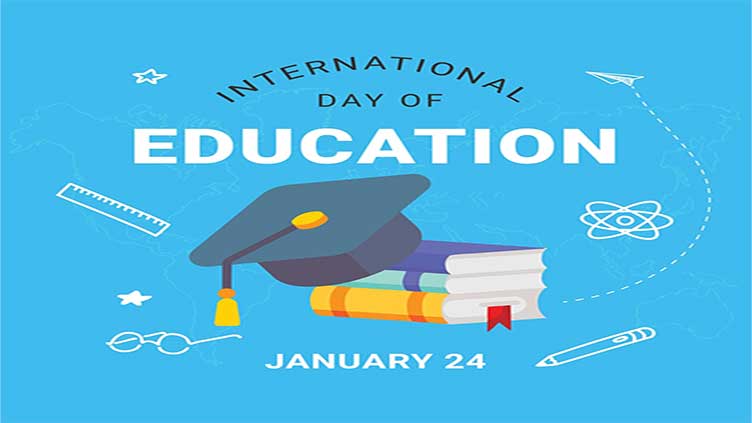ISLAMABAD, Jan 24 (APP):The sixth International Day of E
ducation was celebrated on Wednesday through different activities highlighting the role of e
ducation in ensuring peace and development.
The day was celebrated through several activities including seminars, conferences, discussion programmes, rallies and competitions projecting this year’s theme “learning for lasting peace” which seeks to illuminate the path to global harmony through the voices of our youth.
To mark the day, the Federal Board of Intermediate and Secondary E
ducation (FBISE) organized the sixth annual `International Day of E
ducation English Speech Contest’ on Tuesday where many students from Secondary School Certificate and Higher Secondary School Certificates students shared their perspectives on fostering peace, tolerance, interfaith harmony and gender equality.
Through this opportunity, the students exhibited their extraordinary oratorical skills, showing their eloquence and originality and igniting discussions on critical global issues while representing their institutions at a national level.
The Ministry of Federal E
ducation and Professional Training hosted celebrations at the National Library to promote the power of learning. The event featured awareness activities about social issues affecting youth and opportunities for vision screening and career counseling.
The National E
ducation Foundation (NEF) also participated by setting up a stall with the help of their transgender learners and community school students.
By providing e
ducation to vulnerable groups, NEF is helping fulfill the promise of quality e
ducation as a human right.
UNESCO has dedicated this year’s International Day of E
ducation to the crucial role e
ducation and teachers play in countering hate speech, a phenomenon which has snowballed in recent years with the use of social media, damaging the fabric of our societies.
The United Nations General Assembly proclaimed 24 January as the International Day of E
ducation, in celebration of the role of e
ducation in peace and development.
E
ducation is a human right, a public good and a public responsibility. Without inclusive and equitable quality e
ducation and lifelong opportunities for all, countries will not succeed in achieving gender equality and breaking the cycle of poverty that is leaving millions of children, youth
and adults behind.
According to UNESCO, today, 250 million children and youth are out of school, and 763 million adults are illiterate. Their right to e
ducation is being violated and it is unacceptable. It’s time to transform e
ducation.
The world is seeing a surge of violent conflicts paralleled by an alarming rise of discrimination, racism and hate speech. The impact of this violence transcends any boundary based on geography, gender, race, religion, or politics, offline and online.
An active commitment to peace is more urgent today than ever: E
ducation is central to this endeavour, as underlined by the UNESCO Recommendation on E
ducation for Peace, Human Rights and Sustainable Development.
Learning for peace must be transformative, and help empower learners with the necessary knowledge, values, attitudes skills and behaviours to become agents of peace in their communities.
